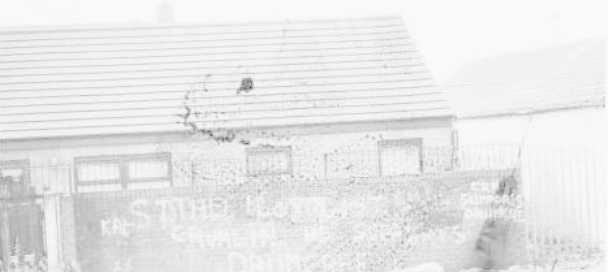 NORTHERN IRELAND’S ..................................DRUGS AND SOCIAL PROBLEMS Father Jim McCartney Northern Ireland also has its share of homelessness. Last year over 4,000 individuals approached the Simon Community. This organisation is another sign of hope, which breaks down the barriers of the sectarian divide. In the past year it has united the support of Ian Paisley and Gerry Adams with its Resolution 2000, a social pledge on homelessness. It is a voluntary organisation providing a wide range of integrated services to single homeless people throughout the Province and has become the largest voluntary provider, offering a service of care across the community. It currently operates 21 units of accommodation, totalling about 300 bed spaces at any one time. Young people are increasingly becoming an area of concern for Simon. I meet with Feargal Lynn, the Director for Accommodation and Resettlement. Although the Simon Community does not directly work with drug users, he sees it as a problem that needs to be tackled. I meet with Kevin a young man aged 24. He has been on heroin for the last three years. He moved away form his home town in Bangor to live in Belfast. He started using soft drugs like cannabis and LSD while at university. He was unable to finish his degree due to his addiction to heroin. He has come from a good family background and still has the support of his family. He manages to hide the fact that he is still using drugs. Two years ago he moved to Leeds and got a job working with an insurance company it was while in Leeds his drug habit deteriorated and he was unable to hold down his job. That was his darkest moment Eighteen months ago he went into a drug rehabilitation unit in the north of England. Ballymena is the drugs capital of Northern Ireland. More than half of all registered addicts in Ulster come from Ballymena, or its surrounding villages. Since the ceasefire heroin dealing has flourished. The paramilitaries and rival gangs are clashing for control of certain areas. The Simon Community has a strict policy on drug use by residents. If anyone is found using drugs on the project, strict procedures are enforced resulting in eviction and police involvement. Leo Foy the Community Drugs Co-ordinator for Newry tells me £3.5 Million was given last year to tackle the drug problem. However, he feels a greater problem faced by young people is alcohol abuse. Because drink is so socially accepted people don’t realise they have a problem. He speaks about young people who go out at a weekend with the sole aim of getting intoxicated. In Kilkeel, during the past year, there has been a difficulty with under age drinkers. Police have been picking up people as young as 14 who are drunk. Small farmers experience another social dilemma. An increasing number of young people are leaving the homestead with no incentive to continue the family tradition. Falling farm incomes have had their impact on the rural community. Farmers and their families, vets and rural based retailers have all suffered from a decline in financial income due to the downturn within the agricultural industry. Rural areas have had to adapt to change. People, who are not directly employed in the agricultural sector, have few employment options available. As profits have declined local post offices, shops and service providers have closed or relocated to urban areas. In some rural communities incomes are at their lowest levels. However, the Housing Executive is committed to urban and rural regeneration strategies working in partnership with voluntary and statutory agencies and communities. |
||||